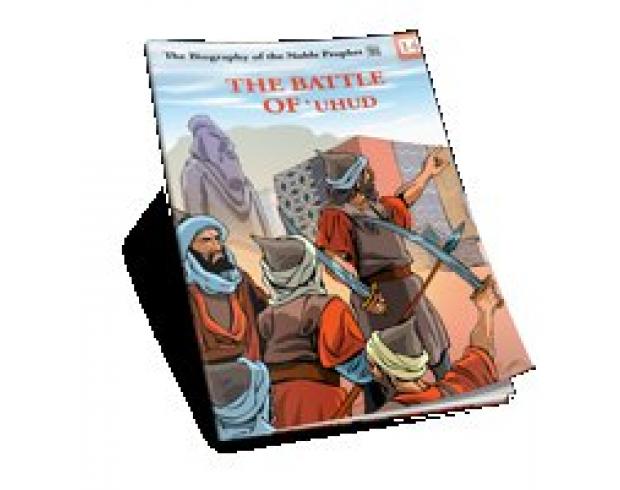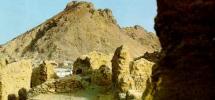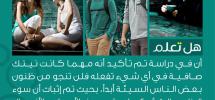Hamzah, the uncle of the Prophet of Islam, was one of the bravest men of Arabia and a well-known officer of Islam. It was he, who insisted earnestly that the army of Islam should go out of Madina and fight against Quraysh. It was Hamzah, who protected the Prophet in Makkah during the delicate moments with all his might. Hamzah accepted Islam in the fifth year of the Proclamation. May God be pleased with him, and bless him. He was the same senior and valiant officer who killed the brave champion of Quraysh Shaybah and others and also wounded a group of the enemies in the Battle of Badr - the first battle of Islam. He had no object in mind except to defend truth and virtue and to maintain freedom in the lives of human beings. Hamzah had killed Utbah, the father of Hinda, in the battle of Badr. In the battle of Uhud, she slaked her thirst for vengeance which had given her no rest since the battle of Badr. Hinda, the wife of Abu Sufyan and the mother of Muawiya, nursed a grudge against Hamzah and was determined to take her father's revenge on the Muslims at any cost. Wahshi, an Ethiopian warrior, was the slave of Jabir Mut'am and an uncle of Jibir had also been killed in the Battle of Badr. He (Wahshi) had been appointed by Hinda to help achieve her object by hook or by crook. She asked him to kill one of the three persons (viz. the Prophet, Imam Ali or Hamzah) so that she might avenge her father's death. The Ethiopian warrior said in reply: "I cannot approach Muhammad at all, because his companions are nearer to him than anyone else. Ali too is extraordinarily vigilant in the battlefield. However, Hamzah is so furious that, while fighting, he does not pay any attention to any other side and it is possible that I may be able to make him fall by some trick or by taking him unawares". Hinda was contented with this and promised that if he was successful in performing the job she would set him free. Some believe that Jibir made this promise with his slave (Wahshi) as his (Jibir's) uncle had been killed in the Battle of Badr. Wahshi, the slave, says: "On the Day of Uhud I was pursuing Hamzah. He was attacking the centre of the army like a ferocious lion. He killed every one whom he could approach. I hid myself behind the trees and stones, so that he could not see me. He was too busy in fighting. I came out of ambush. Being an Ethiopian, I used to throw my weapon like them (i.e. like the Ethiopians) and it seldom missed the target. I, therefore, threw my javelin towards him from a specific distance after moving it in a particular manner. The weapon fell on his flank and came out from between his two legs. He wanted to attack me but severe pain prevented him from doing so. He remained in the same condition till his soul departed from his body. Then I approached him very carefully and having taken out my weapon from his body returned to the army of Quraysh and waited for my freedom. In the battle of Uhud the Muslims were defeated. After their rout, Hinda and the other harpies she had brought with her from Makka, mutilated the bodies of the slain Muslims. Hinda cut open Hamzah's abdomen, plucked out his liver and chewed it up. Muhammad ibn Umar Waqidi, the historian, says that she made a fire in the battlefield, roasted Hamzah's heart and liver and ate them. Not satisfied with this, she cut the limbs, the ears and the nose of Hamzah, strung them into a "necklace," and entered Makka wearing it as a "trophy" of victory. Muhammed Peace be upon Him, the Apostle of God, was deeply aggrieved at the death and at the mutilation of the body of such a stalwart of Islam as Hamzah. He bestowed upon him the titles of the "Lion of God," and the "Chief of the Martyrs."
2014-04-18 02:28:32
Hamzah, the
sign in to comment
Be the first to comment





